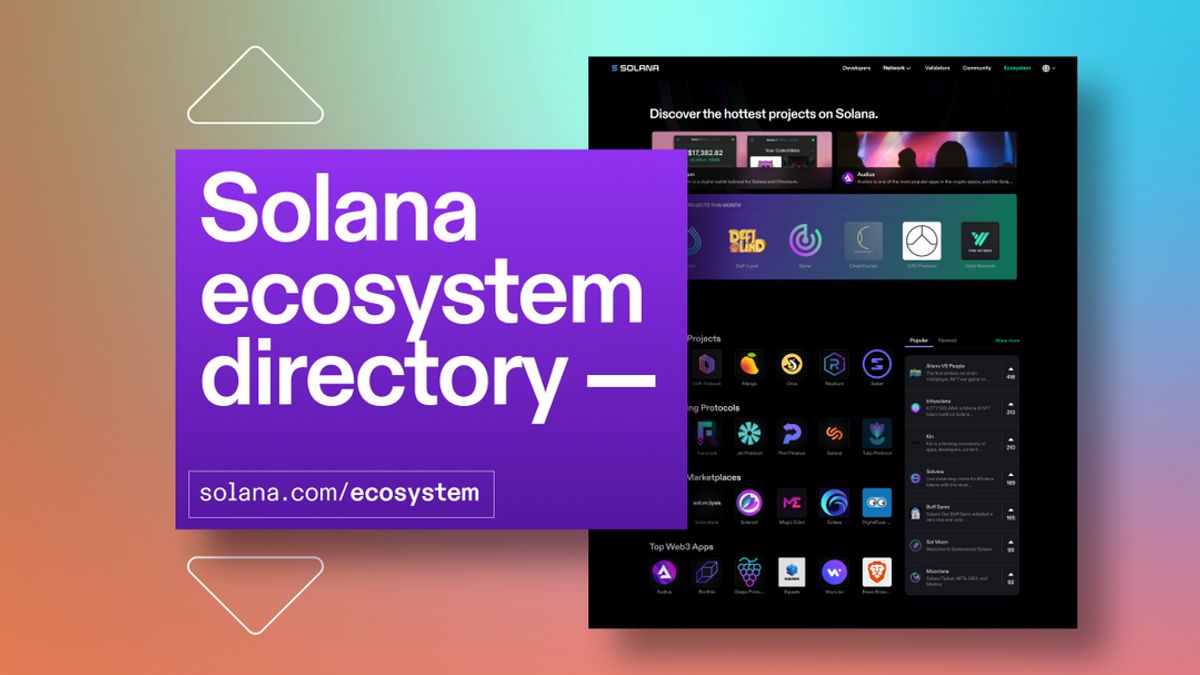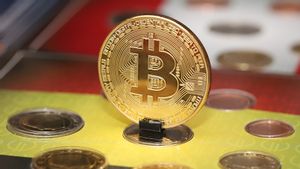JAKARTA - Bank of America digital asset strategist Alkesh Shah has predicted that Ethereum competitor Solana could become a “digital asset ecosystem visa” in a January 11 research note.
The Solana network launched in 2020, and has since grown to become the fifth-largest cryptocurrency with a market cap of 47 billion US dollars. An order of magnitude faster than Ethereum, which has been used to complete more than 50 billion transactions and minted more than 5.7 million non-exchangeable tokens (NFT).
But critics argue the speed comes at the expense of decentralization and reliability, but Shah thinks the benefits outweigh the disadvantages:
“Its ability to deliver high throughput, low costs, and ease of use creates a blockchain optimized for consumer use cases such as micropayments, DeFi, NFT, decentralized networks (Web3), and gaming.”
He went on to suggest that Solana was taking a chunk of Ethereum's market share due to its low cost, ease of use, and scalability while Ethereum could be relegated to “high-value transaction and identity, storage, and supply chain use cases,” Shah wrote, as quoted by Business Insider.
“Ethereum prioritizes decentralization and security, but at the expense of scalability, which has led to periods of network congestion and transaction fees that are sometimes greater than the value of the transactions sent,” added Shah.
Visa processes an average of 1,700 transactions per second (TPS), but the network could theoretically handle at least 24,000 TPS. Ethereum currently handles around 12 TPS on the mainnet (more on layer two), while Solana offers a theoretical limit of 65,000 TPS.
Shah admits that, “Solana prioritized scalability, but the relatively less decentralized and secure blockchain had its tradeoffs, illustrated by some network performance issues from the start.”
SEE ALSO:
Solana has been experiencing more than just network performance issues over the past few months, such as a recent recall issue confirmed by Binance on January 12, reports of delayed performance on social media on January 7 and what appears to be a DDos attack on January 5, although Solana denies this happened.
This comes less than a month after the previous attack on December 10, with reports of network bottlenecks caused by mass bottling related to early December offerings (IDOs) on Solana-based decentralized exchange platform Raydium.
In an interview with Cointelegraph on December 22, Austin Federa, head of communications at Solana Labs, said that developers are currently working to address network issues, particularly in relation to improving transaction measurement.
“The Solana Runtime is a new design. It doesn't use EVM [Ethereum Virtual Machine] and a lot of innovation was made to ensure that users have the lowest cost, but there is still work to be done at runtime," he said.
The English, Chinese, Japanese, Arabic, and French versions are automatically generated by the AI. So there may still be inaccuracies in translating, please always see Indonesian as our main language. (system supported by DigitalSiber.id)


















